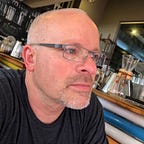My Dad Was Buried in Boston 3 Days Ago. I Was Stuck in Thailand.
Covid-19 has ravaged nursing homes across the country. So, I should not have been surprised when my 90-year-old father, an 8-year-resident at his nursing home, came down with a fever and, 24-hours later, was dead. My sisters and I knew it was likely “sooner rather than later” that we would have to bury my father. But I never anticipated that I would not be allowed to grieve in the way I had been taught and that my participation in our family funeral rituals would be “cancelled” by Covid-19.
Most people do not take the decision to live overseas lightly and from China, to Japan, to Singapore to Thailand, I have had extraordinary life experiences. I was far away from my hometown Boston, but I always knew, if my Dad needed me, I could jump on a plane, fly home and be there. But today I am stuck. I am not allowed to leave Phuket, Thailand. I am unable to be home and grieve with my family. I am collateral damage of the Covid-19 crisis.
When I got the call informing me my father had died, even though his nurse had told me he had Covid-19, it still shocked me. My initial reaction was to find some flights, get home, help with the funeral and grieve. For my sister and my mother, I was able to grieve. It all was there. The recitation of prayers at the temple and at the grave. The lowering of the body into the ground. The shiva — our 7-day mourning period starting immediately after the funeral — where friends and family, just by being visitors to your home, surround you as a community to show love, respect and caring for the family. The knowledge that we were following traditions not for closure, but for completion of our obligations to the dead and to the living.
I am my father’s only son but I would not get to kiss him goodbye. I would not get to say prayers at his grave. I would not get to eulogize him. I would not get to grieve with my family. And maybe most important, for me as a Jew, I would not get to show him kevod ha-met or “respect for the dead” by shoveling dirt on his coffin as a final gesture. It is said that the sound of dirt hitting the coffin is a “terrible and haunting sound of finality” and allows one to accept the reality of the death and start to grieve. I would not get to hear that.
There is nothing I can do about my father being dead but it feels as if my grieving is unimportant. I feel like I have been disinvited from participating in the final act of respect a child can give to a parent. I feel like my grief doesn’t matter. Maybe this is because I am alone in my grief, on the other side of the world, unable to do much but think about my Dad and look at the ocean in this Asia-Pacific jewel. Thailand is truly is an amazing place. But right now it is an empty paradise for me.
For sure, there are many more heartbreaking stories of Covid-19 victims. People burying their children, adults in the primes of their lives being taken away, healthcare heroes barely able to sleep but summoning the courage to care for the sick and multiple deaths in families. So I don’t seek any equivalence or sympathy for my particular experience. I write to share an important part of this global pandemic. The inability to grieve according to one’s own traditions. So many cannot be close to their loved ones to pay final respects to parents, children, friends, family, lovers and partners. Simply put, their grieving has been put on hold, indefinitely. Covid-19 takes lives and also chases families and loved ones in death.
The Covid-19 crisis ensures we cannot count on life as we know it. Everything we take for granted can be taken away in an instant. Whether it be the life of a loved one, money to pay the bills, the ability to sit at a coffee shop, or the ability to grieve. It can all be taken away.
Let’s hope this plague will soon pass and life will return to some sense of normalcy.
For me, I will never again take the ability to grieve for granted. I will never forget I could not just jump on a plane to be with my father.
It’s unfair but it’s my reality and I have to live with it.
